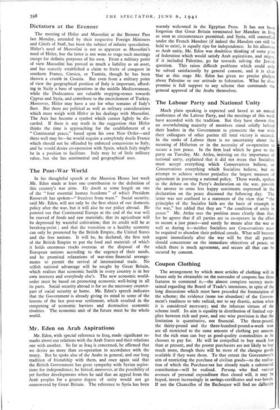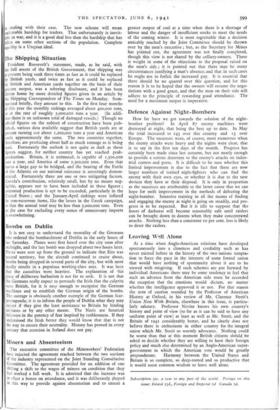Coupon Clothing
The arrangement by which most articles of clothing will in future only be obtainable on the surrender of coupons has three features to commend it,—the almost complete secrecy main- tained regarding the Board of Trade's intentions, in spite of the long discussions which must have preceded the formulation of the scheme; the evidence (none too abundant) of the Govern- ment's readiness to take radical, not to say drastic, action when it is considered necessary; and the inherent virtues of the scheme itself. Its aim is equality in distribution of limited sup- plies between rich and poor, and one wise provision is that the limitation is quantitative, not financial. The three-pound, the thirty-pound and the three-hundred-pound-a-week man are all restricted to the same amount of clothing per annum, but the rich man can buy as good-quality commodities as he chooses to pay for. He will be compelled to buy much less than at present, and the poorer purchasers are not likely to buy much more, though there will be more of the cheaper goods available if they want them. To that extent the Government's aim of restricting the purchase of civilian goods—to the realisa- tion of which the Purchase-tax has already made a substantial contribution—will be realised. Persons who find various avenues of personal expenditure thus closed will, it may be hoped, invest increasingly in savings-certificates and war-bonds. If not the Chancellor of the Exchequer will find no difficulty aj dealing with their case. The new scheme will mean undeniable hardship for traders. That unfortunately is inevit- able in war, and it is a good deal less than the hardship that has fallen on some other sections of the population. Complete equality is a Utopian ideal.



























 Previous page
Previous page